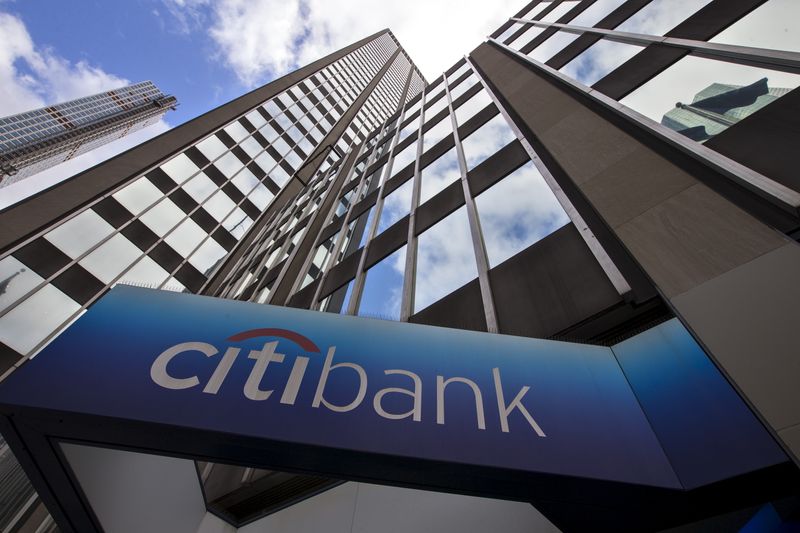(Reuters) - Citigroup Inc (NYSE:C) beat analysts' estimates for profit in the second quarter as its trading desks cashed in on the market volatility caused by the coronavirus outbreak, allowing it to set aside $5.6 billion for a potential surge in loan defaults.
The New York-based bank reported a profit of $1.32 billion, or 50 cents per share, for the three months ended June 30, down from $4.8 billion, or $1.95 per share, a year earlier. Revenue rose 5% to $19.77 billion. Analysts on average had estimated $19.12 billion in revenue and earnings of 28 cents per share, according to Refinitiv data.
The largest U.S. banks have so far stashed away more than $52 billion to prepare for potential losses this year as the economy heads into one of its worst recessions in decades.
So far Citi, the third largest credit card issuer in the United States, has offered forbearance on 2 million credit card accounts representing 6% of balances, the bank said.
Total loans fell marginally to $685 billion.
End of period deposits, however, surged 18% to $1.23 trillion at Citi as stimulus programs left consumers and corporate clients with more cash to help them ride out the economic consequences of the pandemic.
Trading fees, a bright spot for many banks in financial markets' roller-coaster ride since February, helped offset rock-bottom interest rates that make it harder for banks to earn money on lending, with bond trading revenues up 68%.
Net interest income, or the difference between what a bank pays for deposits and earns from loans, was down 7%.
Another source of support was an increase in fees from follow-on issues and new debt issuance as companies looked to shore up their financial position to weather the COVID-19 pandemic. Investment banking revenue rose 37% year-over-year.

Shares of the lender were up 1.5% in premarket trading.